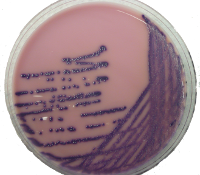Salmonella and E. coli are two of the most common causes of bacterial foodborne illnesses. Salmonella bacteria are known to cause salmonellosis, typhoid fever, and paratyphoid fever in humans. It is naturally found in the intestines of several animals and in the skin of some. Salmonella is common in a wide range of food products, including meat, agricultural produce and eggs. It can also be found in water. Salmonella can survive for several months in contaminated water – and also love dry conditions. Food may become contaminated by unwashed hands of an
infected food handler. Infection is spread generally through contaminated food or drink. Infection can be prevented by cooking food thoroughly and chilling leftovers rapidly. Food handlers should ensure they are clean before handling food.
Food Illness caused by Salmonella

Salmonella is one of the most common causes of food poisoning. A level of Salmonella contamination of 10 to 20 colony forming units (CFU) of bacteria per egg is sufficient to cause human salmonellosis. According to the Centers for Disease Control and Prevention (CDC), Salmonella causes 1.4 million illnesses, 15,000 hospitalizations and 400 deaths in the United States every year. Humans, regardless of their age or sex, are vulnerable to Salmonella contamination. However, the most vulnerable are children under the age of 5, the elderly, and those with impaired immune systems. Symptoms develop 8 hours to 3 days after eating contaminated food and last 4 to 7 days with characteristics including diarrhea, fever, nausea, stomach cramps, vomiting, and headache.
Salmonella infection (salmonellosis) can be passed to humans from animals, including poultry, cattle, pigs, and domestic animals. Infection can be deadly for those with weakened immune systems like the children and elderly. Infection is usually diagnosed by culture of a stool sample.
How to Prevent Salmonella Infection
Anyone who prepares food must practice good hygiene, such as thoroughly washing hands after going to the bathroom or handling raw foods. Also, since Salmonella can be spread quite easily from one food to another, it is important to guard against cross contamination during food preparation. Salmonella is destroyed by heat but people can become sick if they eat raw or incompletely cooked eggs. Therefore avoiding eating undercooked eggs, poultry and meat is one way of avoiding infection.